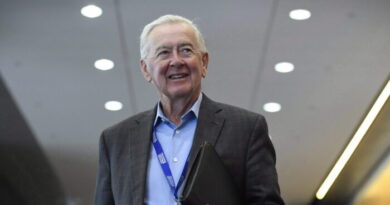Poilievre pledges tax decrease for seniors, extended deadline for RRSP contribution.
Conservative Leader Pierre Poilievre emphasized that seniors who opt to work beyond retirement age should not face financial penalties.
Under Poilievre’s proposed electoral promise, seniors would be permitted to earn up to $34,000 tax-free, an increase of $10,000 from the current system, which includes a $15,000 personal exemption and a $9,000 age credit.
“We need our smartest, wisest individuals who choose to contribute to be able to offer their best, and we should reward them for doing so,” stated Poilievre during a campaign event in Montmagny, Que., on March 26.
Additional measures for seniors include extending the age limit for deciding what to do with retirement savings accounts (RRSPs) from 71 to 73, allowing savings to grow for an additional two years. Options include withdrawing the funds, transferring them to a registered retirement income fund (RRIF), or purchasing an annuity.
Poilievre also affirmed his commitment to maintaining the retirement age at 65.
“It should be evident that no senior should be compelled to work, but those who choose to do so should not face repercussions,” he added.
A substantial part of Poilievre’s campaign pledges focus on tax cuts and regulatory reductions to enhance incomes and stimulate economic growth.
Recently, the Conservatives vowed to abolish the GST on new homes priced under $1.3 million and reduce the income tax rate by 2.25 percent for Canadians in the lowest income tax bracket.
Similarly, Liberal Leader Mark Carney has made comparable commitments, including eliminating the GST on new homes under $1 million and lowering the income tax rate by 1 percent in the lowest income tax bracket.
Both leaders are positioning themselves as best equipped to safeguard the Canadian economy against the upheaval caused by the Trump administration.
While in Windsor, Ont., on March 26, Carney announced plans to establish a $2 billion strategic fund to assist workers in the auto sector, which has been impacted by U.S. tariffs. On the same day, President Donald Trump unveiled 25 percent tariffs on foreign cars to bolster domestic auto production, effective April 2.
The repercussions on Canada are still uncertain, with reciprocal tariffs from the Trump administration set to be imposed on April 2.
Poilievre’s message to Trump is a straightforward “knock it off.” He emphasized the chaos and worker displacement caused by the tariffs and urged an end to the threats against Canada.
“I think it’s easier to deal actually, with a Liberal, and maybe they’re going to win, but I don’t really care. It doesn’t matter to me at all,” he stated in a Fox News interview, characterizing Canada as one of the “nastiest” countries to engage with, criticizing Trudeau and his team as “nasty.”





